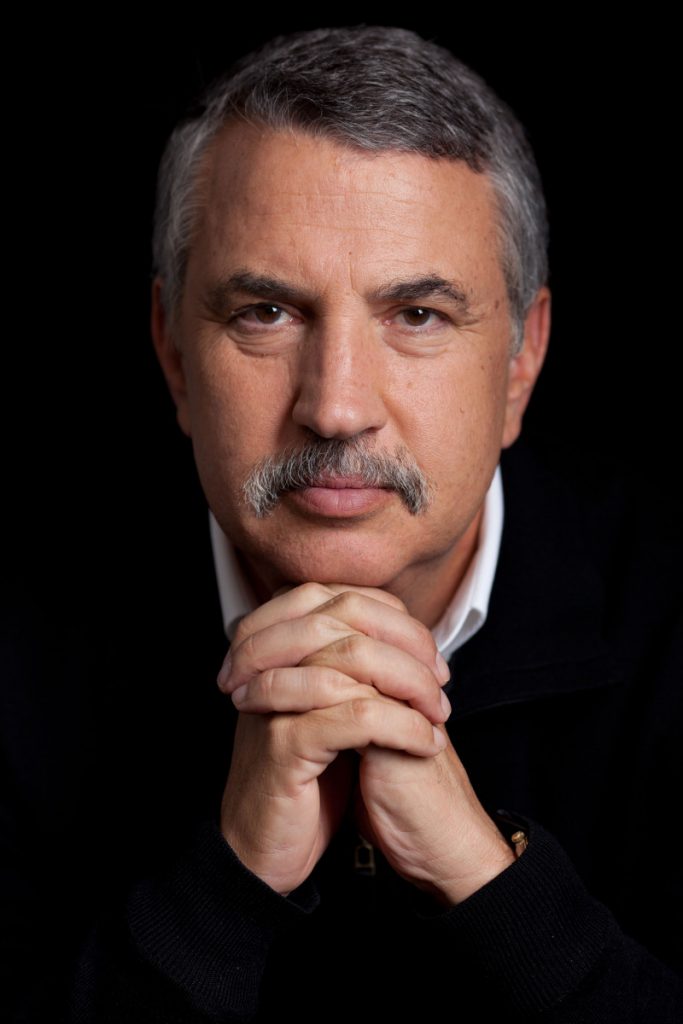
Cody Englander & Julia Weber
Staff Writers
Thomas Friedman will close Week Eight’s “The Middle East: The Gulf States’ Emerging Influence” with a morning lecture at 10:45 a.m. today in the Amphitheater.
Friedman is the foreign affairs columnist for The New York Times and is a three-time Pulitzer Prize winner, having won two for his international reporting from the Middle East and one for his columns written about the terrorist attack on Sept. 11, 2001. Since 1981, Friedman has covered international affairs all over the world and will bring these decades of experience as a reporter to today’s morning lecture.
Friedman is known for his ability to analyze complex, difficult issues in succinct and accessible ways; he frequently commentates on the role of the Middle East on the world stage in contemporary politics and studies the ever-evolving relationship between Middle Eastern countries and the United States.
He is the author of seven New York Times bestseller books including From Beirut to Jerusalem, The Lexus and the Olive Tree, Longitudes and Attitudes, The World Is Flat, Hot Flat and Crowded, That Used To Be Us and Thank You For Being Late.
Recently, he has cited the “creative possibilities” President Donald Trump’s administration can offer to stabilize the Middle East, in an interview on NPR’s “Morning Edition.”
He believes Trump has a four-part plan to stabilize the region without giving China the ability to do so. In an interview with NPR, he clarified his position.
“I think what the president is trying to do is, number one, diffuse as many of the regional conflicts there as possible and even open the possibility of ties between old adversaries like Syria and Israel and Israel and Saudi Arabia,” Friedman said. “That’s number one.”
Second, he hopes to create regional security to keep out China from interfering in regional affairs.
Friedman believes the next parts of Trump’s plans in the region are to get American troops out to reduce spending, while making profits from selling weapons. Friedman describing this as a way to “stabilize the region.”
Despite this, he has doubts about an unbiased approach from Trump, given his acceptance of a Boeing 747-8 luxury jetliner from the Qatari government.
“If we’re going to be effective in that region, we need to be a neutral arbiter and not be doing personal business alongside the geopolitical interests of the United States of America,” Friedman said on NPR. “Bad idea.”
He believes America should follow its best interest, following an opinion piece he wrote in The New York Times, “How Netanyahu Played Trump for a Fool in Gaza.”
Friedman critiqued both the Israeli government and Hamas. He believes both sides have played a major part in the rising death toll. He believes Hamas has played a major role in keeping out aid by not returning Israeli hostages.
“(Hamas) not only wants to keep control of Gaza after any ceasefire; it also wants the United States to guarantee its safety from a resumption of Israeli attacks if and when it gives up the last Israeli hostages, whom Hamas has stashed in tunnels and elsewhere for more than 21 months. This is a sick, twisted organization that bears huge responsibility for the suffering in Gaza,” Friedman wrote. “But what too many people still have not grasped is just how sick this current Israeli government is. Too many American officials, lawmakers and American Jews keep trying to tell themselves that this is simply another right-wing Israeli government, but just a little more right. Wrong.”
According to Friedman, Netanyahu told Trump that stronger military action would result in the return of Israeli hostages under Hamas control. Despite America’s aid, no hostages have been released.
“(Netanyahu) and Hamas have been tacitly enabling each other’s political survival for decades,” Friedman wrote. “It is quite possible that this disastrous war will end with both of them still in power.”




